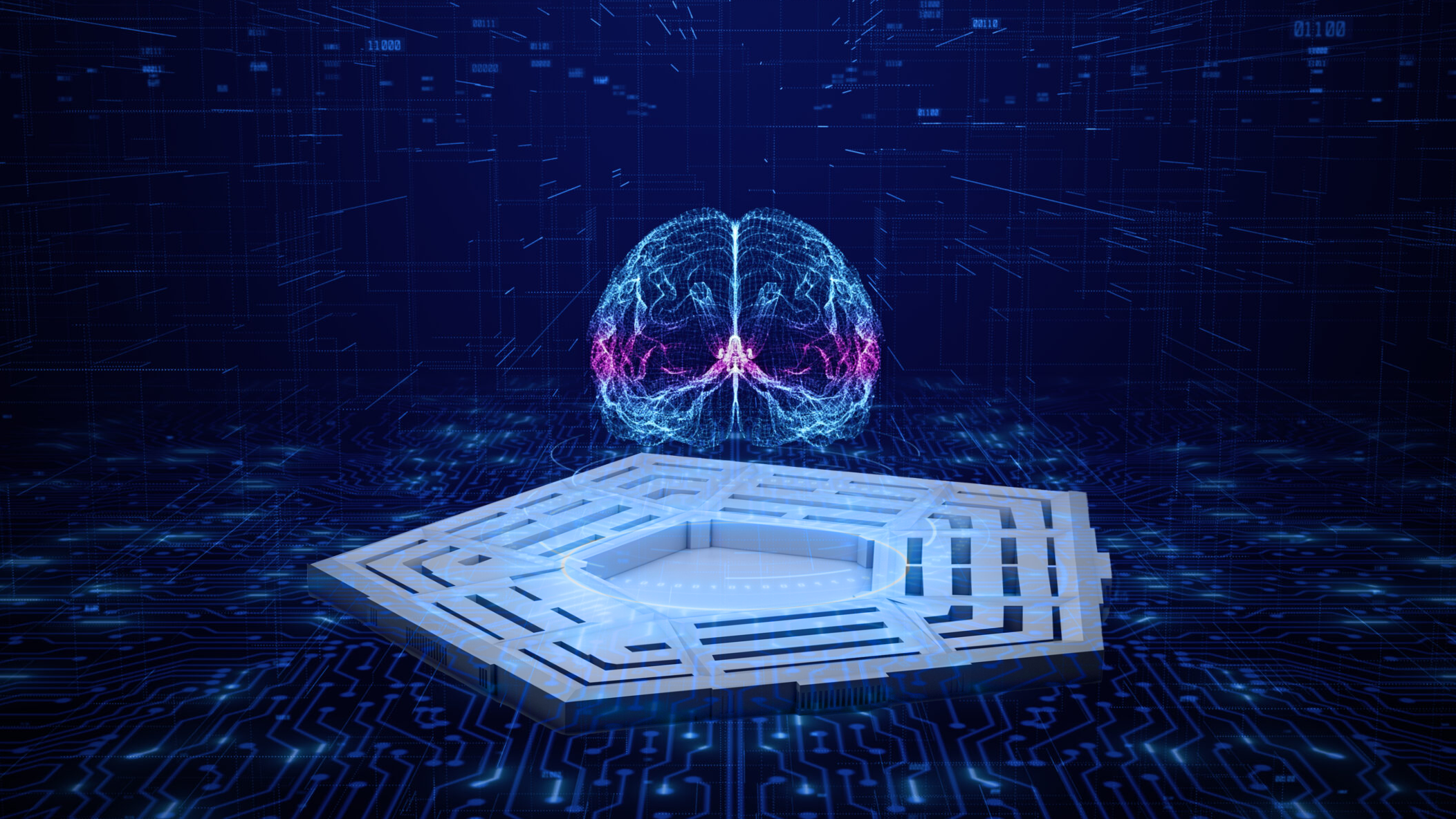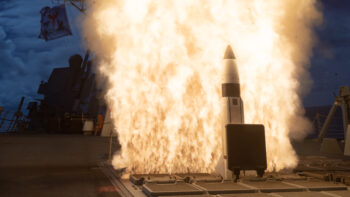
Pentagon grapples with growth of artificial intelligence. (Graphic by Breaking Defense, original brain graphic via Getty)
WASHINGTON — After military information technology and cybersecurity officials ring in the new year, they’ll be coming back to interesting challenges in an alphabet soup of issues: JWCC, JADC2 and CDAO, to name a few.
Of all the things that are likely to happen in the network and cyber defense space, those are three key things I’m keeping an especially close eye on in 2023. Here’s why:
[This article is one of many in a series in which Breaking Defense reporters look back on the most significant (and entertaining) news stories of 2022 and look forward to what 2023 may hold.]
Potential JWCC Protests
On Dec. 7, the Pentagon awarded Amazon Web Services, Google, Microsoft and Oracle each a piece of the $9 billion Joint Warfighting Cloud Capability contract after sending the companies direct solicitations back in November.
Under the effort, the four vendors will compete to get “task orders.” Right now, it’s unclear when exactly the first task order will be rolled out or how many task orders will be made.
It’s also possible that just like the Joint Enterprise Defense Infrastructure contract, JWCC could be mired in legal disputes, particularly when it comes to which vendor gets what task order.
“As you know, with any contract, a protest is possible,” Lt. Gen. Robert Skinner, director of the Defense Information Systems Agency, told reporters Dec. 8 following the JWCC awards. “What we really focused on was, ‘Here are the requirements that the department needs.’ And based on those requirements, we did an evaluation, we did market research, we did evaluation to see which…US-based [cloud service providers] were able to meet those requirements… The decision based on whether there’s a protest or not really didn’t play into it because we want to focus on the requirements and who could meet those requirements.”
Sharon Woods, director of DISA’s Hosting and Compute Center, said at the same briefing that “under the acquisition rules, the task orders, there’s a $10 million threshold and a $25 million threshold on protests.”
“So it’s really dependent on how large the task order is,” she added.
If there is a protest, the DoD could potentially see delays in a critical program its been trying to get off the ground for years now.
A New Office To Oversee JADC2
After a year of a lot of back and forth about the Pentagon’s Joint All Domain Command and Control effort to better connect sensors to shooters, a new office has been stood up with the aim of bringing jointness to the infamously nebulous initiative.
In October, DoD announced the creation of the Acquisition, Integration and Interoperability Office housed within the Office of the Secretary of Defense. Dave Tremper, director of electronic warfare in Office of the Undersecretary of Defense for Acquisition and Sustainment, will lead the office, and the first task will be finding how to “truly get JADC2 across the department,” Chris O’Donnell, deputy assistant secretary of defense for platform and weapon portfolio management in OUSD (A&S), said Oct. 27.
The creation of the office came a few months after Deputy Defense Secretary Kathleen Hicks said she wanted more high-level oversight of JADC2 and following complaints from military service officials.
Tracking The CDAO
It’ll be interesting to see what the new Chief Digital and Artificial Intelligence Officer Craig Martell and his office will accomplish over the next year. Martell, a former Lyft exec, was tapped as the Pentagon’s first CDAO earlier in 2022.
As CDAO, Martell has some big responsibilities and can’t pull on any prior Pentagon experience. When the CDAO officially stood up June 1, the office absorbed the Joint AI Center, Defense Digital Service and Office of Advancing Analytics — all key parts of the Pentagon’s technology network. And there are plans to permit the chief data officer to report directly to the CDAO. (The CDO is “operationally aligned” to the office and has been rolled into one of its directorates, according to an internal DoD memorandum that was obtained by Breaking Defense in May.)
Already Martell’s priorities have slightly shifted: He initially thought his job would entail producing tools for DoD to do modeling, but over the first few months on the job, there’s been a focus on “driving high quality data.” During his remarks at the DIA DoDIIS Worldwide Conference Dec. 13, Martell said what most people think and demand of artificial intelligence is “magical pixie dust.”
“What they’re really saying is, excuse my language, ‘Damn, I have a really hard problem and wouldn’t it be awesome if a machine could solve it for me?’” he said. “But what we really can deliver in lieu of that — because I’m here to tell you that we can’t deliver magical pixie dust, sorry — but what we can deliver is really high quality data.”
Martell is also working to further other DoD efforts like zero trust, the Joint Warfighting Cloud Capability and JADC2. The Pentagon has set an ambitious goal of implementing zero trust across the department by 2027 and released a zero-trust strategy in November. The question remains as to what exactly a full implementation of zero trust will look like.






















